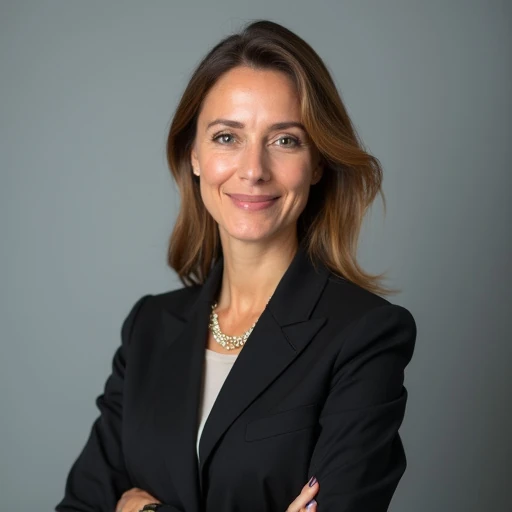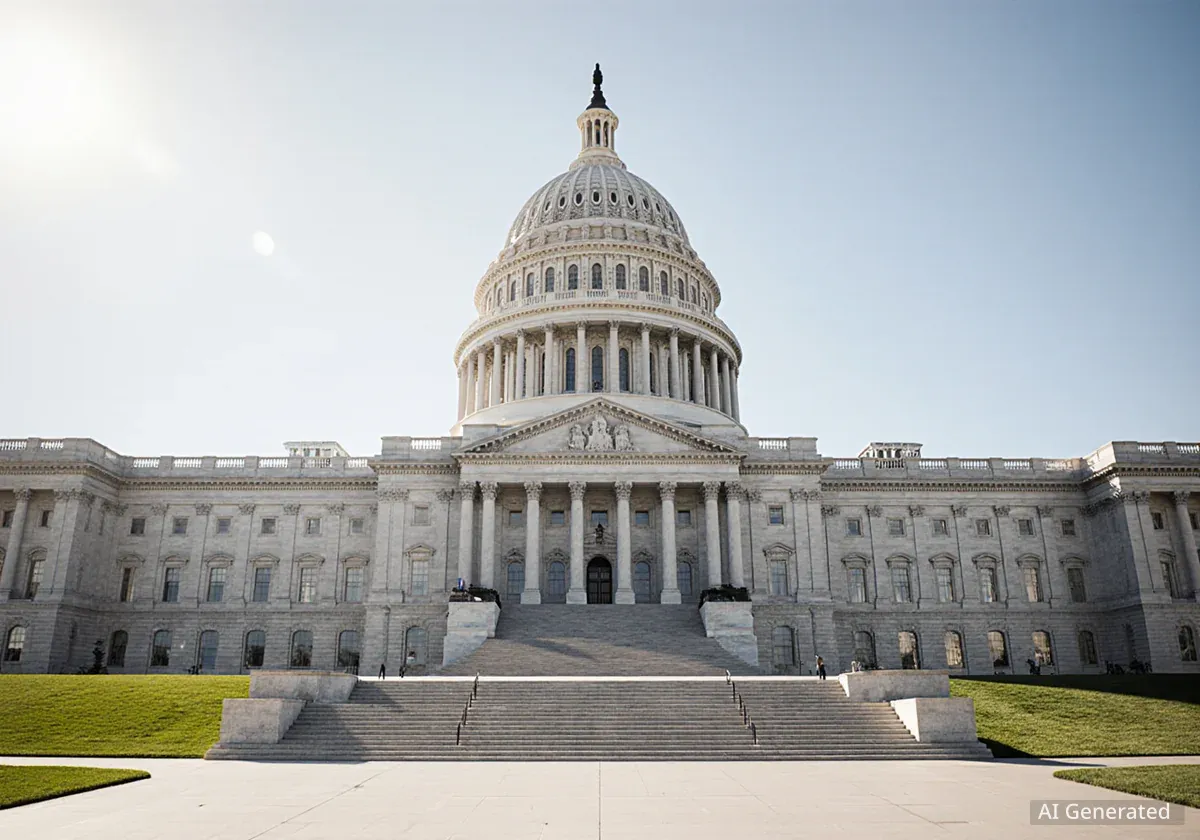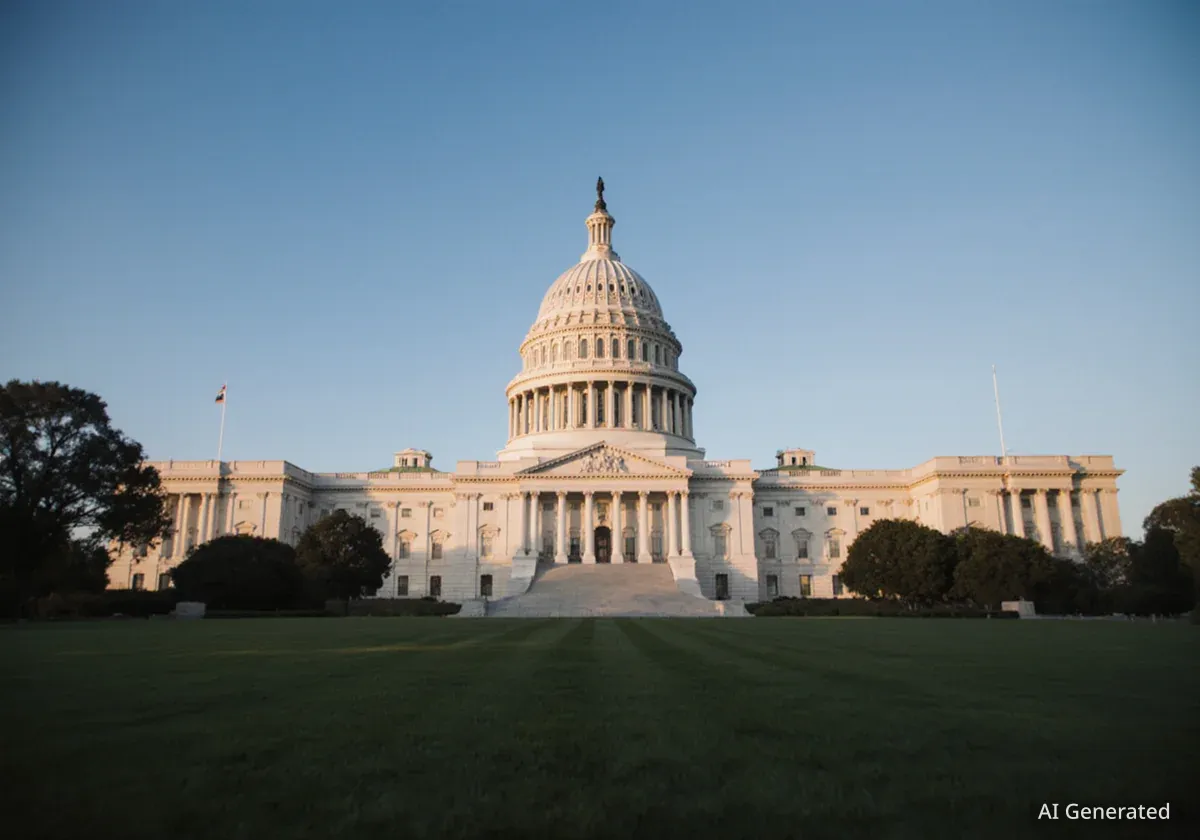As U.S. Middle East envoy Steve Witkoff engages in sensitive ceasefire negotiations, his family's real estate firm, the Witkoff Group, is actively seeking billions of dollars in investments from some of the same Gulf nations involved in the diplomatic discussions. This overlap of high-stakes diplomacy and significant business interests has raised questions about potential conflicts of interest within the Trump administration.
A New York Times investigation revealed that while Steve Witkoff, a longtime real estate developer and friend of President Trump, serves in his official diplomatic capacity, his son Alex Witkoff now leads the family company. However, reports confirm the elder Witkoff has not yet fully divested from the firm, meaning he stands to profit from its ongoing business activities.
Key Takeaways
- Steve Witkoff, U.S. envoy for the Middle East, is a real estate developer whose family company is active in the region.
- His son, Alex Witkoff, is currently running the Witkoff Group and seeking investment from Gulf states.
- Steve Witkoff has not fully divested from the company, creating a potential for personal financial gain from its deals.
- The family's business relationships, particularly in Qatar, overlap with key diplomatic partners in peace negotiations.
- Another son, Zach Witkoff, is involved in a cryptocurrency venture with the Trump family, also securing Mideast investments.
Diplomacy and Development A Complicated Mix
The appointment of Steve Witkoff, a prominent New York real estate developer, as a special envoy for the Middle East has placed his family's business activities under intense scrutiny. The central issue revolves around the Witkoff Group, the family's real estate empire, which continues to operate and expand its financial ties in the Middle East while its patriarch spearheads U.S. diplomatic efforts in the same region.
When Steve Witkoff accepted the government post, he handed over the company's day-to-day operations to his son, Alex. Despite this change in leadership, the lines between business and statecraft appear blurred. The New York Times reported that Alex Witkoff has been actively soliciting investments from sovereign wealth funds and investors in Gulf Arab states, creating a direct parallel between his father's diplomatic contacts and the company's financial targets.
Background on the Witkoff Group
Founded by Steve Witkoff in the late 1990s, the Witkoff Group is a major player in the real estate development industry. The company is known for acquiring and redeveloping properties, with a portfolio that includes significant projects in New York and Florida. Steve Witkoff's friendship with Donald Trump dates back to the 1980s, rooted in their shared background as New York real estate developers.
The Question of Divestment and Financial Ties
A key concern highlighted by government ethics experts is Steve Witkoff's ongoing financial stake in the company. According to financial disclosures, Witkoff sold a portion of his stake in the company for $120 million upon becoming an envoy. However, the White House has confirmed that the process of full divestment is not yet complete.
This means that as the Witkoff Group secures deals, potentially with entities influenced by his diplomatic work, Steve Witkoff could personally profit. Debra Kamin, a reporter for The New York Times who investigated the matter, emphasized the significance of this arrangement.
“There is no question that these relationships and these allegiances carry over between business and politics...it’s our job as reporters at The New York Times to show our readers where these conflicts of interest exist, and also show them where the Witkoffs and other people in the administration may or may not be profiting personally from them while they are trying to do this work,” Kamin stated in an interview.
The administration and the Witkoff family maintain that their business and diplomatic activities are separate. They argue that the family's pre-existing relationships in the Middle East are an asset to diplomacy, not a conflict.
Focus on Qatar and Gulf Relationships
The Witkoff family's extensive business history in the Middle East spans nearly a decade. These long-standing relationships are now at the center of the debate. For instance, Steve Witkoff has acknowledged a close friendship with the prime minister of Qatar, Sheikh Mohammed bin Abdulrahman Al Thani. This relationship is both personal and professional, as Qatari entities have been involved in financing projects connected to the Witkoff Group.
The Park Lane Hotel Deal
One notable transaction involved the Park Lane Hotel in New York. The Witkoff Group was partners with Mubadala, an Abu Dhabi sovereign wealth fund. The Qatari Investment Authority later took over the project after foreclosing on a loan against Mubadala. While Steve Witkoff clarified they were never direct partners with the Qataris on that specific deal, the transaction illustrates the complex web of financial connections between his company and key state actors in the Gulf.
During a real estate forum, Alex Witkoff was asked if his father's diplomatic role made it easier to raise capital. He responded, “We’re raising capital based on a 30-year crew... It’s business as usual.”
However, critics argue that the perception of influence is as important as the reality. For Gulf investors, building financial ties with a family so closely connected to the U.S. administration could be seen as a strategic move to gain political favor.
A Broader Family Enterprise
The Cryptocurrency Venture
The family's business interests extend beyond traditional real estate. Steve Witkoff's other son, Zach Witkoff, runs a cryptocurrency company named World Liberty Financial. This venture is a partnership with the Trump family and has also reportedly attracted billions of dollars in investment from the Middle East, particularly from the United Arab Emirates (UAE).
This parallel business track further complicates the ethical landscape, showing another avenue through which the family's political connections could be leveraged for financial enrichment. The reporting suggests a multi-faceted strategy for financial gain that leverages the family's high-profile status.
A Pattern in Washington?
The situation with the Witkoff family is not unique within the current administration. It reflects a broader trend where the lines between public service and private business interests have become increasingly indistinct. Similar concerns have been raised about other figures, including:
- Jared Kushner: The President's son-in-law, whose own Middle East business dealings while serving as a senior advisor have drawn scrutiny.
- The Trump Family: The President's sons continue to run the Trump Organization, which has engaged in international business during his term.
Analysts point to what they describe as a pattern of “sons profiting from their fathers'” positions of power. While these activities may not be explicitly illegal, they raise significant ethical questions about whether U.S. foreign policy could be influenced by the private financial interests of those conducting it. As these business dealings continue alongside sensitive diplomatic negotiations, the demand for greater transparency and stricter ethical guardrails is likely to grow.





